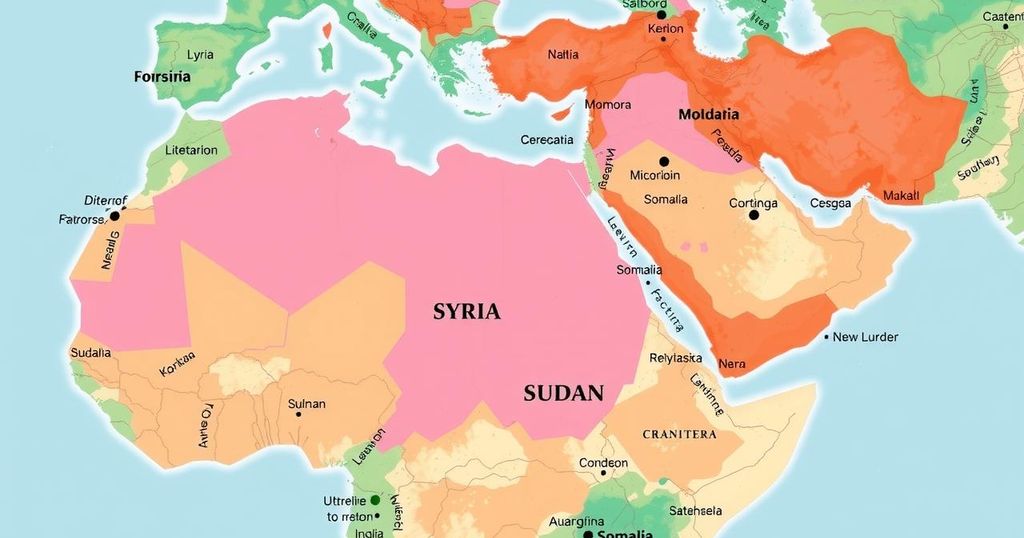The United States and Israel are investigating potential relocation destinations for Gazans, focusing on Syria, Sudan, Somalia, and Somaliland, amidst strong opposition from Arab nations. Trump’s plans to manage Gaza have elicited complexities in diplomatic relations and substantial resistance, reflecting the intricate dynamics surrounding this humanitarian issue.
The United States and Israel are currently exploring the possibilities of relocating the population of Gaza, approximately 2 million individuals, to countries such as Syria, Sudan, Somalia, and Somaliland, despite initial setbacks. This initiative has stemmed from recent statements made by President Donald Trump regarding the management and reconstruction of Gaza, wherein he envisioned a future for Gazans outside their homeland.
Trump’s assertion indicated intentions to “take over” Gaza and to facilitate the relocation of its residents, suggesting they would not wish to return after witnessing the reconstruction efforts. Nevertheless, there has been significant opposition from various Arab nations, which have firmly rejected these plans.
Relations among Israel, the United States, and the four prospective host countries are fraught with complexity. Reports indicate that the Trump administration attempted to engage with the Syrian government concerning the relocation plan. Yet, President Ahmad al-Shara denounced the initiative as “a serious crime that will ultimately fail,” while a senior Syrian official claimed no knowledge of such discussions.
Israeli officials maintain a critical stance towards the new Syrian government, entangled in historical tensions exacerbated by the presence of IDF forces in the vicinity. Despite this, economic pressures may incentivize negotiations for aid and recognition.
Concurrently, the U.S. has approached Sudan and Somalia regarding potential resettlement. Despite participating in the Abraham Accords, Sudan is amidst civil war and has expressed a strong rejection of transferring Palestinians. General Abdel-Fattah Burhan emphasized that Sudan “categorically rejects” any notion of relocating Gazans.
Somalia, a nation struggling with poverty and supportive of Palestinian rights, is similarly unlikely to accept Gazans. Ambassador Dahir Hassan stated that “neither the U.S. administration nor Israeli authorities have approached” Somalia regarding such relocation proposals.
Somaliland, which claims independence from Somalia, represents a unique case. Its strategic location and stable political environment since 1991 raise questions about its potential willingness to accept Gazan refugees. Reports indicate that discussions regarding military partnerships and U.S. recognition have taken place, indicating a possible pathway for cooperation.
The situation remains uncertain, as complex diplomatic relationships and national interests heavily influence the prospects of relocating Gazans to these regions. The ongoing dialogue reflects a blend of humanitarian concerns, geopolitical strategy, and the legacy of historical conflicts.
In summary, the United States and Israel’s exploration of resettling Gazans in Syria, Sudan, Somalia, and Somaliland faces significant resistance from these countries. Trump’s ambitions to ‘take over’ Gaza and facilitate relocation have encountered vocal opposition from Arab nations. The geopolitical intricacies and historical tensions complicate potential agreements, illustrating the challenges inherent in addressing the Gaza crisis. Moving forward will require careful consideration of the geopolitical landscape and humanitarian imperatives.
Original Source: allisrael.com






